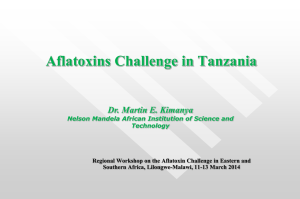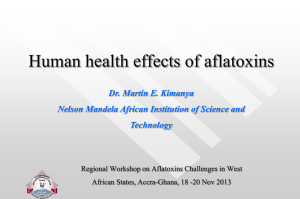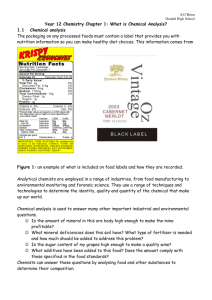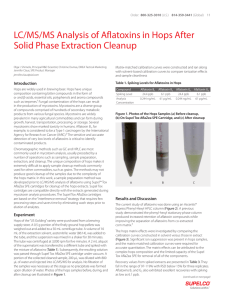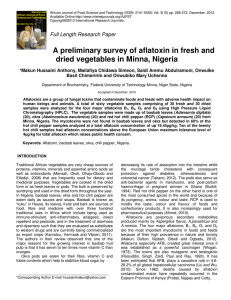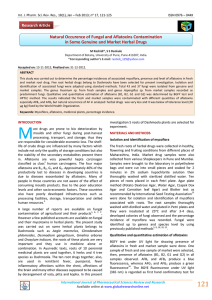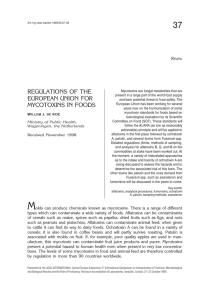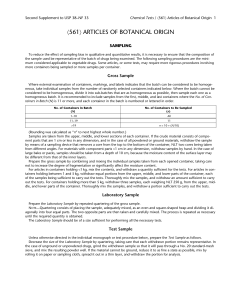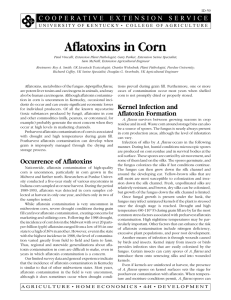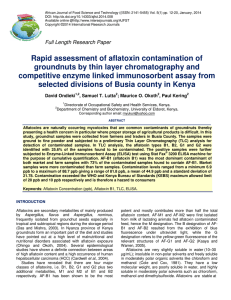Centennial Honors College Western Illinois University Undergraduate Research Day 2012
advertisement
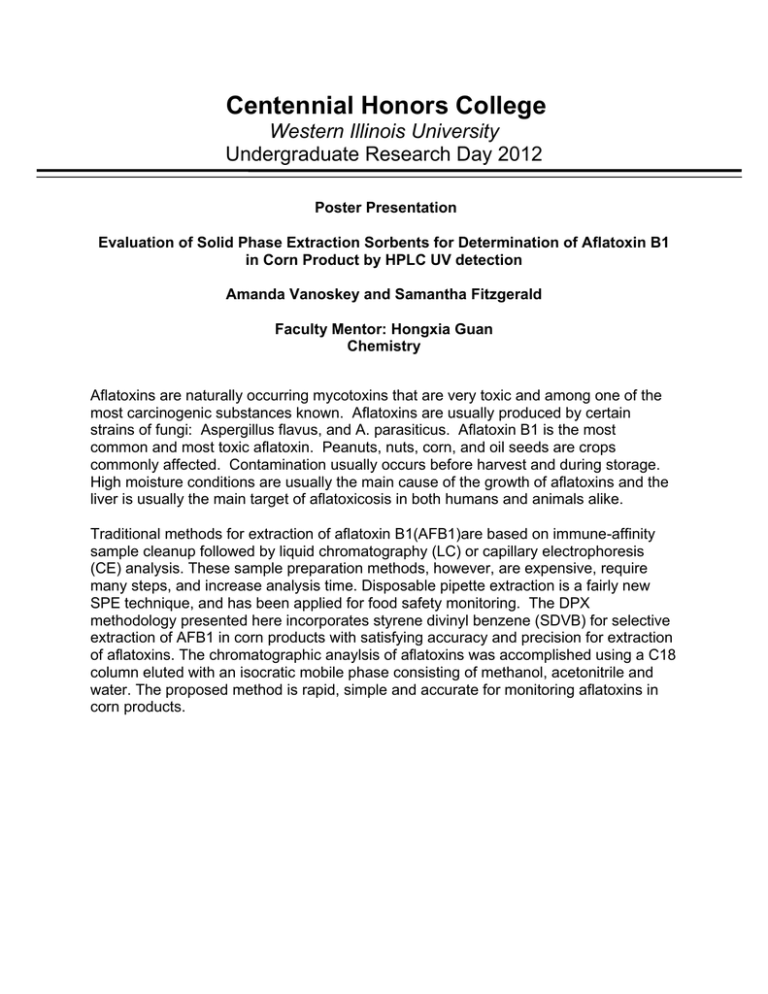
Centennial Honors College Western Illinois University Undergraduate Research Day 2012 Poster Presentation Evaluation of Solid Phase Extraction Sorbents for Determination of Aflatoxin B1 in Corn Product by HPLC UV detection Amanda Vanoskey and Samantha Fitzgerald Faculty Mentor: Hongxia Guan Chemistry Aflatoxins are naturally occurring mycotoxins that are very toxic and among one of the most carcinogenic substances known. Aflatoxins are usually produced by certain strains of fungi: Aspergillus flavus, and A. parasiticus. Aflatoxin B1 is the most common and most toxic aflatoxin. Peanuts, nuts, corn, and oil seeds are crops commonly affected. Contamination usually occurs before harvest and during storage. High moisture conditions are usually the main cause of the growth of aflatoxins and the liver is usually the main target of aflatoxicosis in both humans and animals alike. Traditional methods for extraction of aflatoxin B1(AFB1)are based on immune-affinity sample cleanup followed by liquid chromatography (LC) or capillary electrophoresis (CE) analysis. These sample preparation methods, however, are expensive, require many steps, and increase analysis time. Disposable pipette extraction is a fairly new SPE technique, and has been applied for food safety monitoring. The DPX methodology presented here incorporates styrene divinyl benzene (SDVB) for selective extraction of AFB1 in corn products with satisfying accuracy and precision for extraction of aflatoxins. The chromatographic anaylsis of aflatoxins was accomplished using a C18 column eluted with an isocratic mobile phase consisting of methanol, acetonitrile and water. The proposed method is rapid, simple and accurate for monitoring aflatoxins in corn products.
